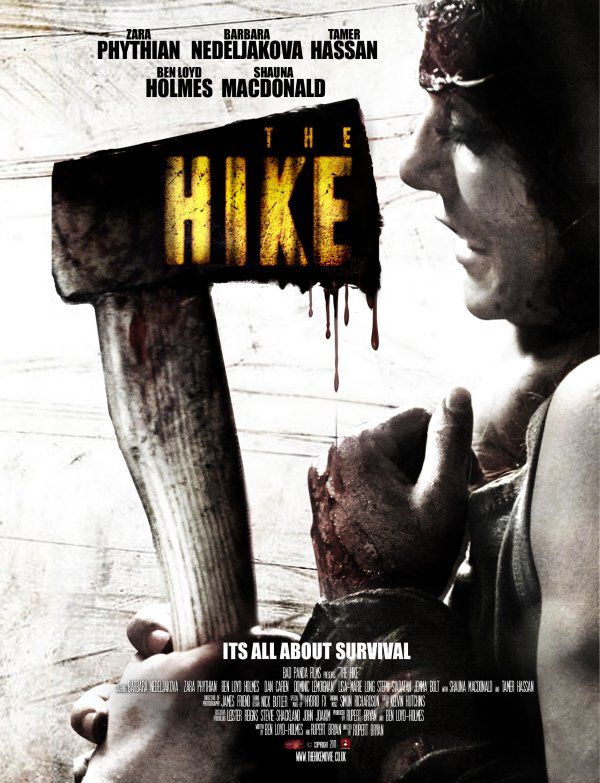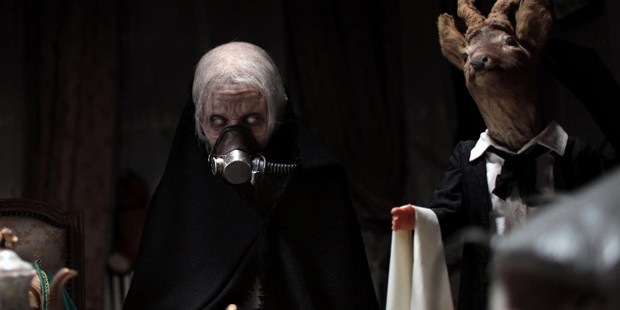

There are times when a jumpy scare could have been cheesy in any other film, a moment when Claire gets a bedside visitor comes to mind, but because this fear is something banked off the characters that “yeah right”-ness almost plays directly into the atmosphere. There’s a general unrest as the camera floats about the musty old in inn with its humble halls and muted carpets. There’s uncertainty in the air there may or may not be something in the dark, making you more vulnerable to attack. You can almost talk about the film without talking about ghosts at all. The Innkeepers has unconventional priorities for a horror film, using scares as a feature instead of the purpose of the movie. She plays up her attitude to compensate for her unshakable anxieties, she’s rattled by a loss of innocence and playfulness when she confirms to herself that the ghosts are real. While, like Luke, she can veer close to being a cropped concept of youthful kookiness, Paxton tampers it down with fragility, and discomfort. Sara Paxton makes Claire likable, someone you’ll care about and want to pluck out of the calamity before it’s too late. Paxton is unrecognizable from the deer in headlights in The Last House on the Left remake. Sara Paxton truly is Claire a spunky, raspy ragdoll girl who walks into doors more than opens them. The horror is never made slapstick or farce, and the humour is either dramatic folly or dopey witticisms from our two leads. There is horror and then there is comedy and they are not things that soil each other while simultaneously overlapping. West is accomplished in this cinematic chemistry. The terror that lurks above Claire is less about fearing a grotesque, shocking sight ahead as it is you fearing for her safety and well being. The quirkiness that surrounds The Yankee Pedlar and the cast within it makes our heroes more likeable, though Lucas’ web flavoured cynicism edges on the stock side. It is as much a horror film, as things are horrifying, as it is a character study or a drama with comedic freckles. While House was lush with homage and slow-built dread, Innkeepers is a craftier, more cautious film. During her shifts, Claire can’t help but push her luck, sitting alone in the humming empty spaces of the hotel, trying to record the sounds of spectres as her work-hour hobby evolves into a deadly obsession.Ī far more modestly produced feature than House of the Devil, The Innkeepers is much more interesting in terms of its identity. Leanne warns Claire that the Pedlar’s spirits are not only real, but very dangerous. Luke, a proud dropout and pessimist, is confident his rusty, amateur, GeoCities-level web design will carry his future career, while Claire has literally never thought about the next step until provoked by sitcom-actress-come-spiritualist-come-inn-patron Leanne Rease-Jones ( Top Gun and Stake Land’s Kelly McGillis.)Ĭlaire begins to seek Leanne’s guidance, despite being turned off by her drinking habits and snappy tone, which pummels her self confidence but inspires her sense of adventure. Luke’s brought a generous amount of beer, but Claire’s brought an excess of curiosity about the Pedlar’s rumoured haunted reputation, something they had both taken casual interest in during their employment.

On its last weekend of business, slacker part-timers Claire (Paxton) and Luke (Pat Healy) have one last marathon shift before moving on to whatever’s next. The Yankee Pedlar is a slow hotel in a small, even slower town.

It also happens to be a chance for star Sara Paxton, often cast as that pretty blonde in really forgettable roles, to earn a new start, not unlike West himself.

As his first film since The House of the Devil, The Innkeepers is Ti West’s opportunity to show a winning streak, or at least an uncanny corridor. If West was looking for a way to be disassociated from Spring Fever, he found a way, and if horror fans were looking for a fresh new talent, they had certainly found him. So, in that same year, West also released House of the Devil, a character driven, style-drenched, brooding paranoia picture, showing what amazing things can be still be done in a genre that’s seen it all. Ti West disowned it, and even requested his name be swapped with an Alan Smithee. In 2009, Ti West directed Cabin Fever 2: Spring Fever, a direct-to-DVD, unnecessary beat horse sequel which embodied the huge plague upon the horror genre where even original ideas are strung out into irrelevancy.


 0 kommentar(er)
0 kommentar(er)
